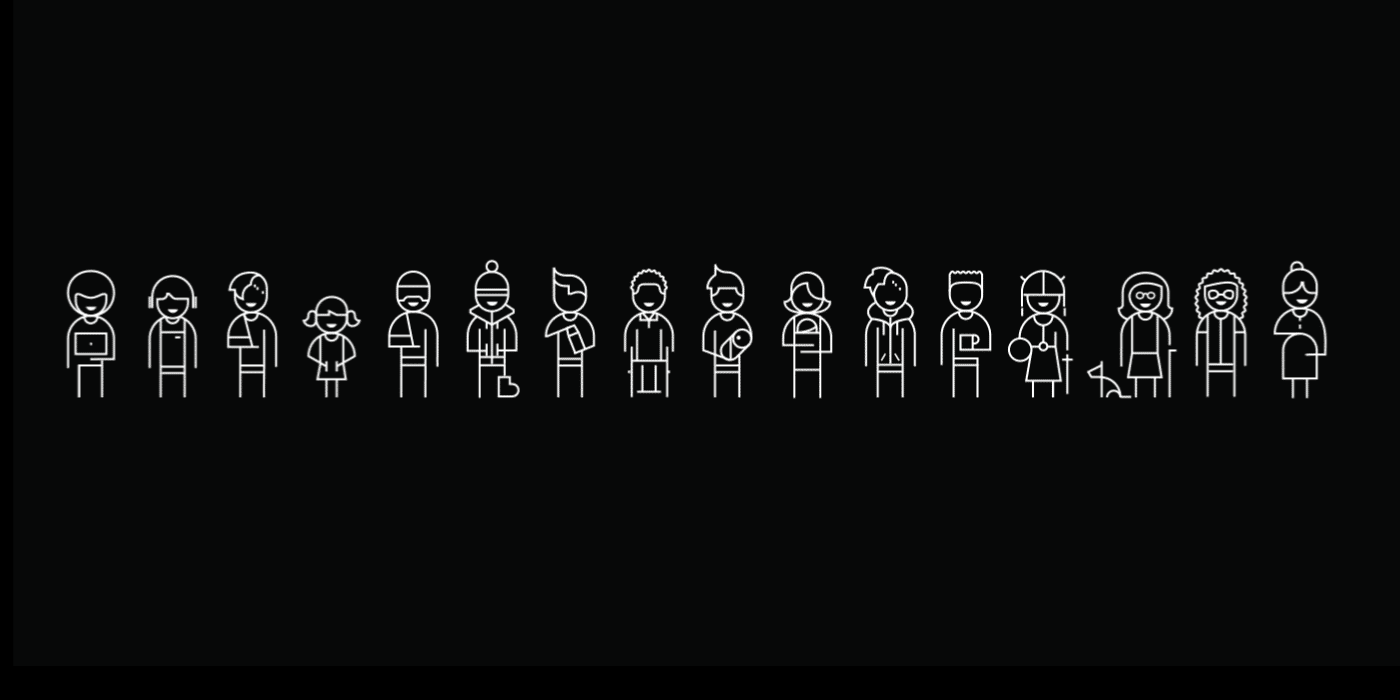9:00 am – 9:30 am: Registration, Breakfast & Welcome
10:00 am – 10:20 am: Workshop 1: Designing Accessible Presentations + Events, with Walei Sabry & and Claire Kearney-Volpe
The college experience is a significant period in everyone’s life. It’s when we make meaningful friendships, learn ideas we will use to interpret the world and gain skills that will help us transition into our careers. That’s why it’s important to include students with disabilities in every aspect of campus life. Students with disabilities are typically excluded from events such as lectures, presentations, clubs, blood-drives, fairs, volunteer opportunities or celebrations. This is due to lack of access planning. Students, faculty and staff can help ensure that this changes. When it comes to planning events and presenting, there are things you can do to ensure that students with disabilities are able to perceive, participate and enjoy your event. This workshop will highlight how to plan an accessible event by ensuring accessibility in the space you use, preparing handouts/flyers in accessible formats and setting up accommodations such as American Sign Language Interpreting for Deaf audiences. You will also learn how to present in an inclusive way so that students with various disabilities have a meaningful experience when they attend your events.
10:30 am – 12:00 pm: Workshop 2: Empathy Building for Innovation, with Margaret Price, Principal Design Strategist, Microsoft
How can diversity act as a source of innovation and disruption? Can design be both universal and personal? Humans have been at the center of design practices for a long time. Although product makers and designers have always sought to understand their customers, they often miss an opportunity. By including a diverse set of people in the design process with a range of physical and cognitive abilities, we can start to understand how empathy and diversity fuel innovation. In this participatory session, we will explore important considerations and practical approaches to uncover universal human motivations, identify barriers and exclusion that impact participation, and glean insight from how people adapt. Join Margaret Price to explore how designing for human diversity can unlock more meaningful experiences for each of us and result in better technologies for all of us.
workshop presenters
Margaret Price, Principal Design Strategist, Microsoft
 Margaret focuses on the intersection of technology, human insights, and, design inspiration as a Principal Design Strategist and is currently helping to create, evolve, and, scale the Inclusive Design practice at Microsoft. Margaret has a background in philosophy – studying human nature and monitoring the cultural landscape to identify areas for creative and strategic growth. Most recently, Margaret collaborated with a series of industry experts to create a documentary about Inclusive Design and the importance of understanding, designing for, and embracing human diversity. Her strategy is featured in the Inclusive Toolkit which was recently awarded by IXDA and nominated as a FastCO World Changing Idea.
Margaret focuses on the intersection of technology, human insights, and, design inspiration as a Principal Design Strategist and is currently helping to create, evolve, and, scale the Inclusive Design practice at Microsoft. Margaret has a background in philosophy – studying human nature and monitoring the cultural landscape to identify areas for creative and strategic growth. Most recently, Margaret collaborated with a series of industry experts to create a documentary about Inclusive Design and the importance of understanding, designing for, and embracing human diversity. Her strategy is featured in the Inclusive Toolkit which was recently awarded by IXDA and nominated as a FastCO World Changing Idea.
Walei Sabry, Digital Accessibility Coordinator, NYC Mayor’s Office for People with Disabilities
 Born in Egypt; Raised in New York City; Once sighted; And now blind. Walei’s field of expertise is transitioning in all facets of life. As the Digital Accessibility Coordinator, Walei makes sure that the City of New York’s digital products can be accessed by all.
Born in Egypt; Raised in New York City; Once sighted; And now blind. Walei’s field of expertise is transitioning in all facets of life. As the Digital Accessibility Coordinator, Walei makes sure that the City of New York’s digital products can be accessed by all.
Claire Kearney-Volpe, Doctoral Research Fellow, New York University, Tandon School of Engineering
 Claire is a passionate researcher, designer, and developer with an interest in human-centered design. She completed a Master’s in Interactive Telecommunications in 2015, and is currently working on a PhD in Rehabilitation Sciences. As manager of the NYU Ability Project, she works on a variety of assistive and rehabilitation technology projects and is active in the digital accessibility community. She is a firm believer that technology serves people better when they participate in its design.
Claire is a passionate researcher, designer, and developer with an interest in human-centered design. She completed a Master’s in Interactive Telecommunications in 2015, and is currently working on a PhD in Rehabilitation Sciences. As manager of the NYU Ability Project, she works on a variety of assistive and rehabilitation technology projects and is active in the digital accessibility community. She is a firm believer that technology serves people better when they participate in its design.
This program will be ASL Interpreted and Real-Time Captioned. Find out about Cooper Hewitt’s accessibility services.
Cooper Hewitt Lab: Design Access is a free programming series taking place in the first two weeks of February 2018, activating the Barbara and Morton Mandel Design Gallery as a collaborative space for learning and experimentation through interactive activities, workshops, discussions, and more for visitors of all ages and communities. Presented in partnership with New York City’s Mayor’s Office for People with Disabilities, collaborators include the San Francisco-based studio Creative Growth, Columbia University Digital Storytelling Lab, Google, Mark Morris Dance Group’s Dance for PD, and ReelAbilities Film Festival.

